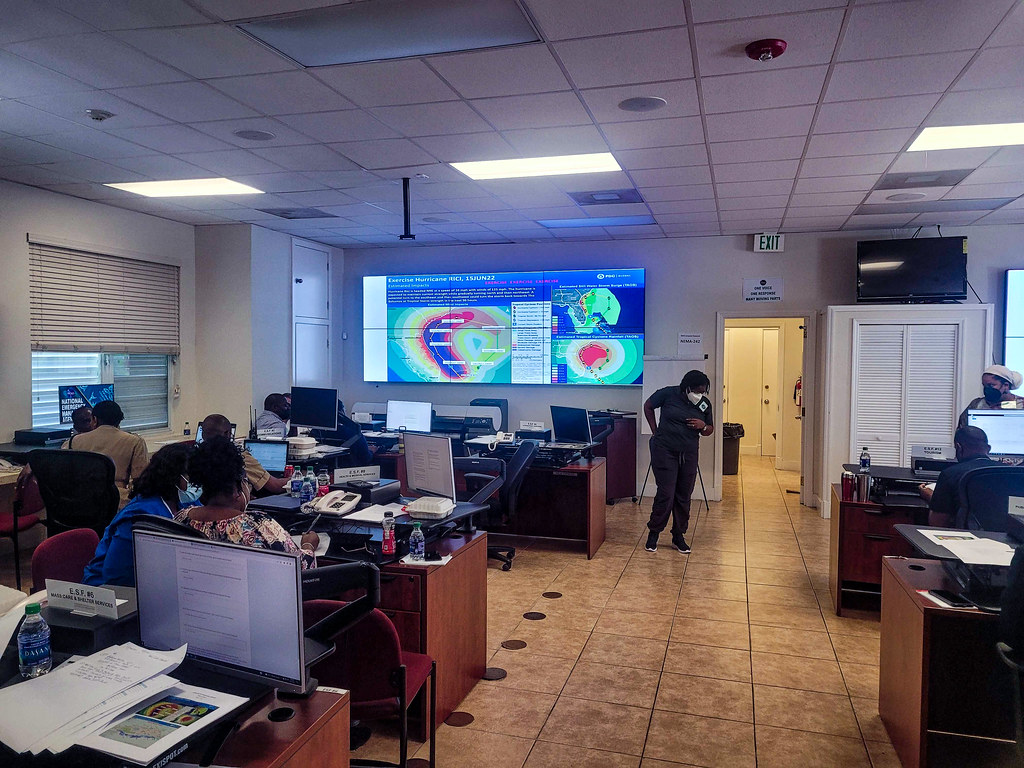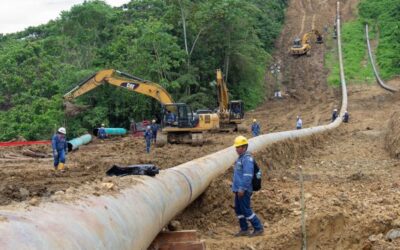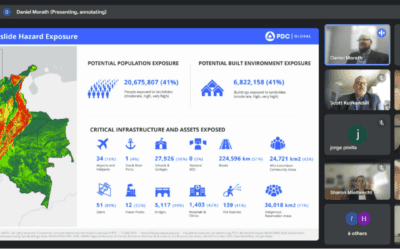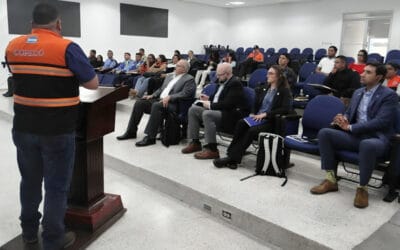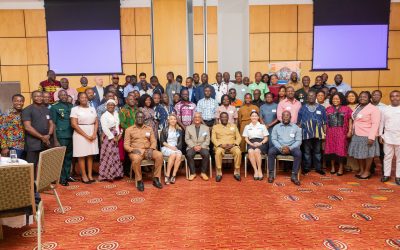The Bahamas and its new Prime Minister have entered this year’s hurricane season better equipped for an above-normal hurricane forecast in addition to the ongoing challenges posed by extreme weather events and disaster impacts in the region.
Thanks to the completion of The Bahamas’ National Disaster Preparedness Baseline Assessment (NDPBA), conducted in partnership with the University of Hawai’i’s Pacific Disaster Center (PDC), the country now has a more holistic understanding of the factors that contribute to disaster risk at both the national and subnational level. This new information will help guide future actions and investments to build resilience, reduce disaster risk, and inform disaster planning and response for the hurricane season ahead.
The Bahamas, an archipelago of small islands located southeast of Florida, is especially vulnerable to hurricane risk and extreme weather—making information provided through the NDPBA even more crucial. Hurricane Dorian, the country’s worst natural disaster, is a poignant reminder of this fact having struck The Bahamas in 2019 while PDC was conducting in-country research for the national baseline assessment.
PDC staff, led by Director of Global Operations Dr. Erin Hughey, returned to The Bahamas in May to officially hand off the results of the NDPBA to government stakeholders. During that week, PDC leadership briefed Prime Minister Philip Davis and his cabinet on the outcome of the assessment. They explained how the NDPBA directly supports The Bahamas in advancing the government’s commitments under the United Nations Sendai Framework and provided a tangible action plan developed in collaboration with country stakeholders to help meet the global targets, promote sustainable development goals, and ensure advancements of the Paris Agreement.
The PDC team also held its final workshop for the NDPBA Program with more than 70 participants from 20-plus agencies, representing all of The Bahamas’ Family Islands.
Additionally, PDC Exercise Lead, Scott Kuykendall, assisted with exercise planning for the U.S. Northern Command-funded Restoration Island Cays. That exercise, which was held this month in Nassau, involved a Category 5 hurricane traversing the islands and resulting in catastrophic damage throughout the archipelago. The realistic scenario required coordination among the National Emergency Management Agency (NEMA) and various other agencies. PDC provided subject matter expertise, exercise direction, and situational awareness using its flagship DisasterAWARE Pro system.
Results and data from the NDPBA are integrated into PDC’s DisasterAWARE Pro platform to ensure that critical information is easy for stakeholders to access, understand, and apply in future decision-making.
During their visit in May, PDC leadership briefed Minister of State Myles LaRoda and NEMA’s Advisory Committee in addition to supporting Permanent Secretary Carl Smith, NEMA Director Capt. Stephen Russell and NEMA Deputy Director Gayle Outten-Moncur with planning efforts for the 2022 Hurricane Season.
Smith, who nominated PDC on behalf of The Bahamas for its recent United Nations Sasakawa Award, said the NDPBA’s findings provide evidence to support policies and programs that increase resilience and “institute risk-informed decision making that encourages sustainable development, multi-agency cooperation and helps align capacity development with priority needs.”
PDC is continuing to work with LaRoda and Smith to facilitate the Prime Minister’s request to advance the NDPBA’s 5-year plan of action with a focus on building Family Island capacity as outlined in the government’s “Blueprint for Change.”
[/et_pb_text][/et_pb_column][/et_pb_row][/et_pb_section]
